It helps to be Swiss, says new boss of Palestinian refugee agency
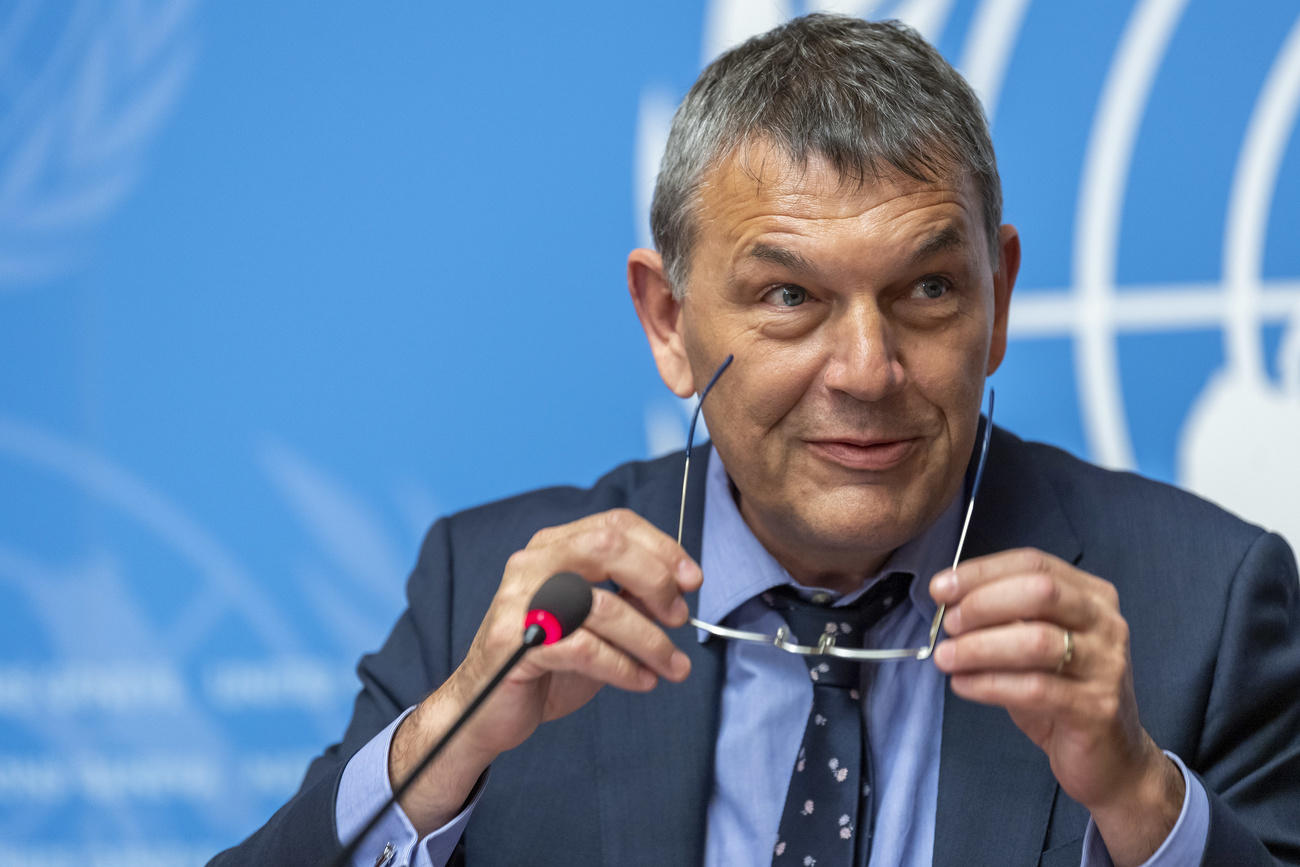
Philippe Lazzarini has a tough job. He officially took up the position as head of UNRWA, the UN’s embattled Palestinian refugee agency, on April 1, in the midst of the coronavirus pandemic. As a veteran of UN humanitarian coordination, especially in the Middle East, he doesn’t think he was appointed because he is Swiss. But it helps, he tells swissinfo.ch. He also has plans to get the organisation back on track.
“In the Middle East, Switzerland is one of the nationalities that’s still perceived as not being politically biased,” says Lazzarini. “There is still a perception of a country that has carried for a long time the notion of neutrality. Having said that, it’s certainly not the reason why I have been appointed. But it helps to be Swiss in a region like this one.”
Indeed, the Middle East conflict seems intractable and is highly sensitive, as is the mandate of UNRWA, the UN Refugee and Works Agency for Palestinian refugees.
Founded by a UN Resolution in 1949, UNRWA is tasked with taking care of Palestinian refugees driven from their homes by the “Nakba” (“catastrophe” in Arabic) following the 1948 Arab-Israeli war. Their right to refugee status is based on a right to return to their homelands, but this has been an ongoing sticking point in peace negotiations. And from the original 700,000 displaced, their number has grown over generations to 5.6 million now in camps in Jordan, Lebanon and Syria, as well as in the Gaza Strip and the West Bank, including East Jerusalem.
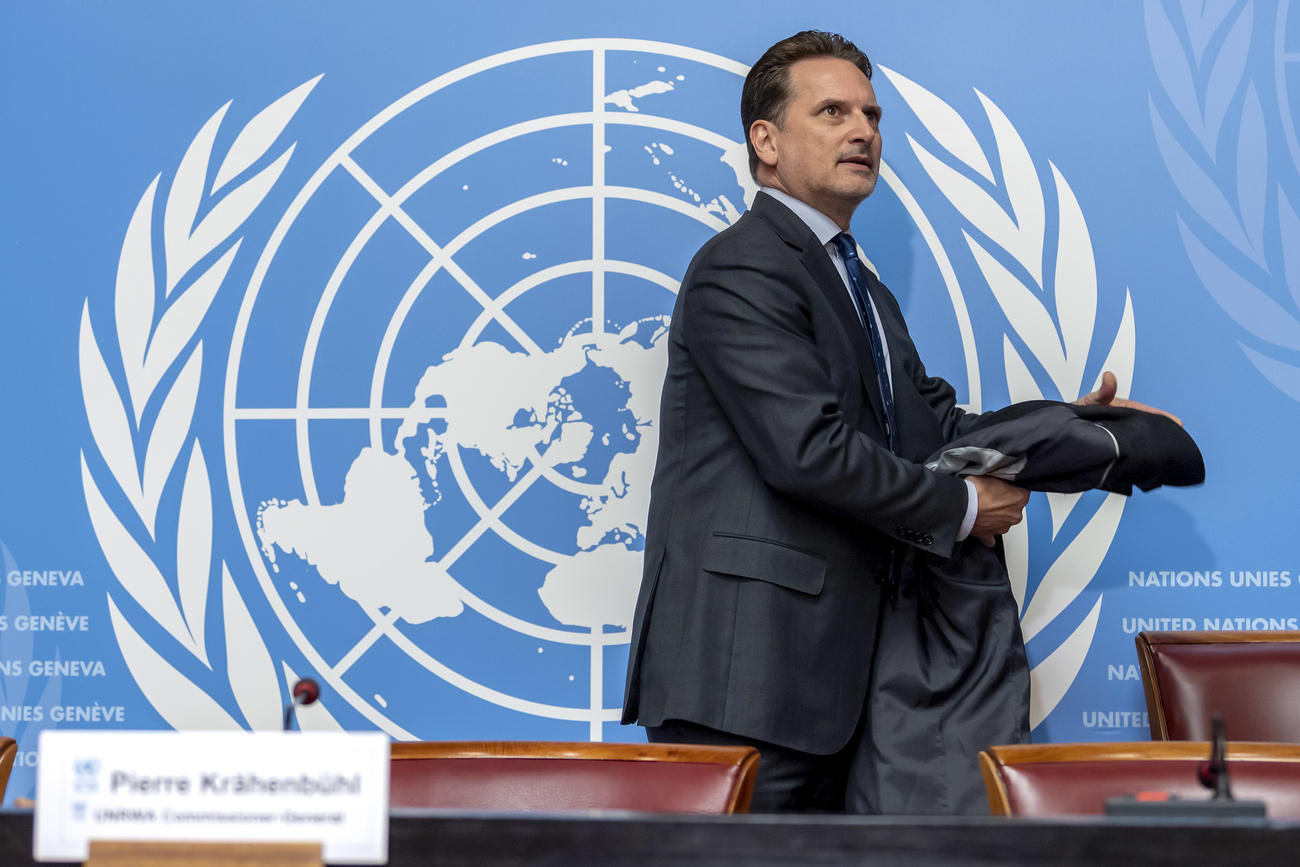
More
Departing UNRWA head claims he is ‘victim of dirty politics’
UNRWA, which relies largely on donations from UN member states, provides education, health care and social services to the refugees. But it is currently facing a severe financial crisis, especially since the Trump Administration cut funding in 2018.
Meanwhile, its former boss, Pierre Krähenbühl, also Swiss, resigned last year amid allegations of mismanagement; he claimed he was the victim of “dirty politics”, notably by the US and its ally Israel. Even the Swiss foreign minister, Ignazio Cassis, said in 2018 that UNRWA was part of the problem rather than the solution in the Middle East.
The ‘new normal’
And now there is also Covid-19. Lazzarini’s first months on the job have not been easy. Coming from Beirut, where he was previously the UN’s Humanitarian Coordinator for Lebanon, he says it took three weeks to negotiate authorisations for the road trip to East Jerusalem, via Syria, Jordan and the West Bank. When he arrived, he was put in quarantine for two weeks. His first induction to the organisation was online.
“I guess it’s a new normal for all of us. But it was a little weird to start with an organisation that way,” he tells swissinfo.ch.
Fighting the spread of the coronavirus in the crowded Palestinian camps full of vulnerable people is a priority right now, he says. “We were extremely worried that if Covid-19 hit Gaza or the camps it would spread very rapidly.” But with only around 160 cases recorded to date in its five fields of operation, he says he is proud of how UNRWA has responded. It shifted its health services to telemedicine, and education to e-learning “from day one”, he says, while food delivery was shifted from distribution centres to home delivery to avoid situations where people would gather in large numbers.
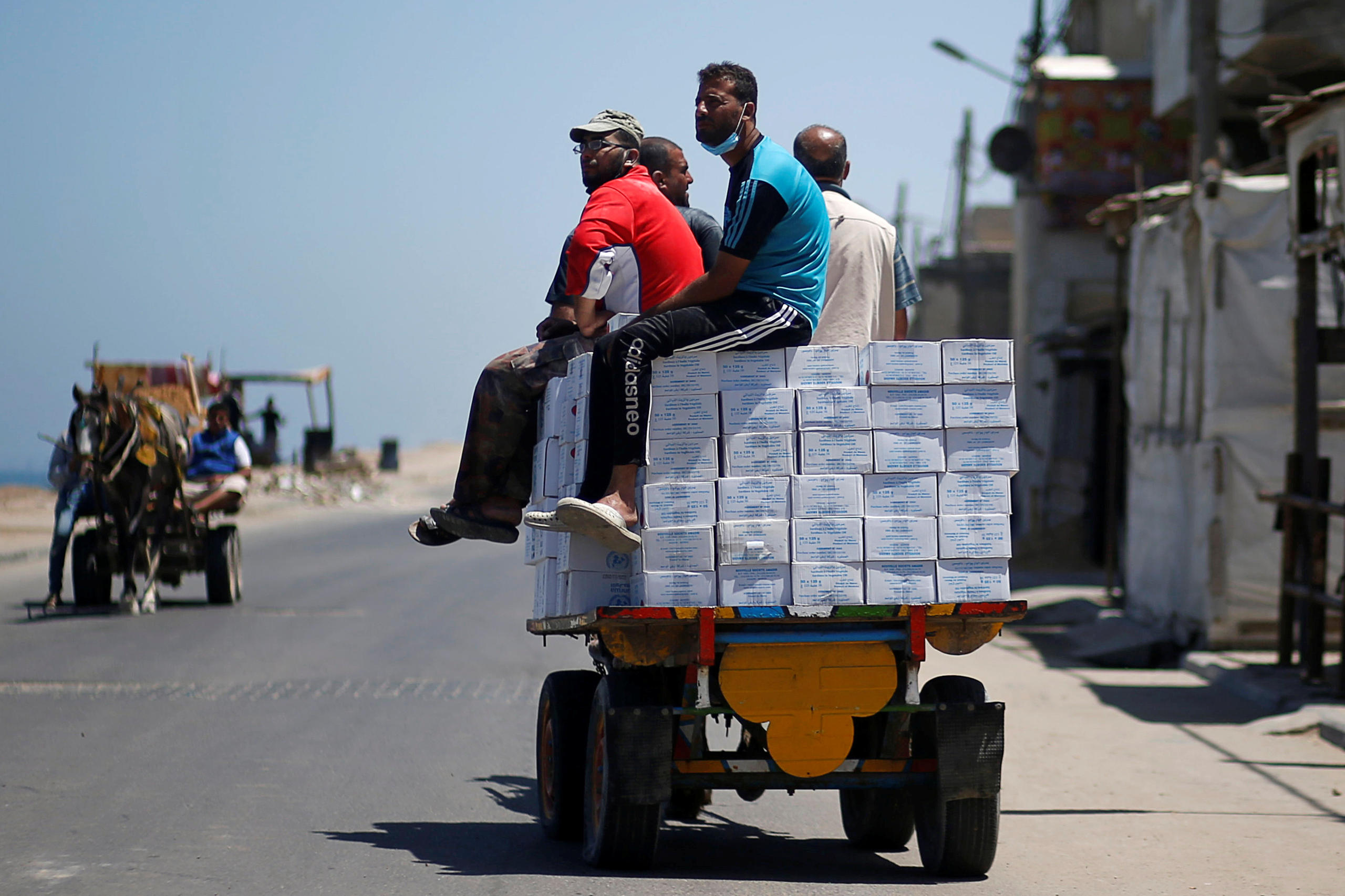
“So I think that through a massive prevention campaign, but also because of the way we have adjusted our modus operandi, we have so far prevented the spread of Covid-19,” he says.
Restoring trust
In addition to Covid-19 and its potential socio-economic impact on the refugees, Lazzarini says his top priorities will be to try to tackle UNRWA’s financial crisis and restore trust in the organisation. “I have to ensure that the organisation is adapted to its environment and that we draw the lessons of the crisis which hit the organisation last year,” he says. “To restore trust, a number of management initiatives need to be implemented.”
These initiatives are aimed at reinforcing the accountability of the agency, reinforcing its relations with its governing board (the advisory committee) and restoring financial transparency, he tells swissinfo.ch. “But beyond that, we need also to adjust the organisation, to create a culture in which everyone feels empowered. That’s the way to restore trust within the organisation, and also with a number of partners.”
Lazzarini says a number of these initiatives are already in the pipeline and are being discussed with member state representatives on the advisory board. He expects implementation to take 12-18 months.
‘Avoiding politics’
What does Lazzarini say to the remark by Swiss foreign minister Cassis that UNRWA is part of the Middle East problem rather than the solution?
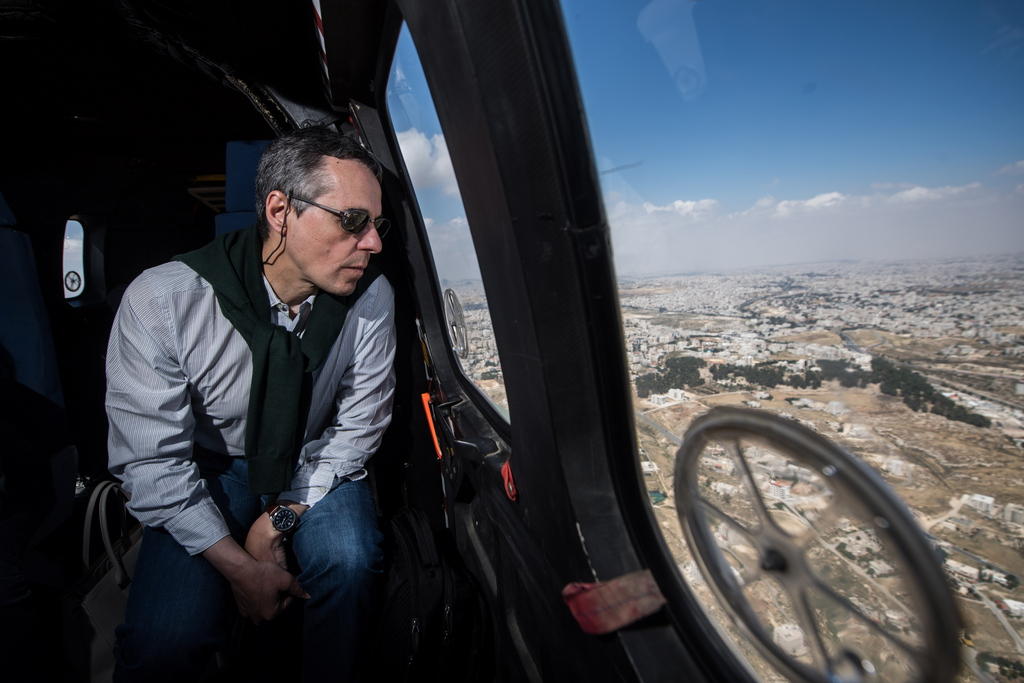
More
Minister: ‘UN aid agency is part of the problem in the Middle East’
“There is no doubt that it is part of the solution, and I don’t see any alternative to UNRWA and investing in what is contributing to peace and security here in the region,” he tells swissinfo.ch. “It would be a pity to abandon all the investment which has been undertaken in human development.”
But he acknowledges that the relevance and legitimacy of the organisation has been regularly questioned. Another priority will be to do something about this, he says. “My objective and my priority here is to ensure that we shield the organisation from political considerations, that the donors and the member states feel proud of their investment in the organisation. It’s important we focus on our mandate, on service delivery, on promoting the rights of the Palestinian refugees until the day there is a fair and lasting political solution in the region.”
Shielding UNRWA from politics might, however, be a tall order in a region which is so politically sensitive. Israel, which leads attempts to undermine UNRWA’s legitimacy, is currently looking to annex part of the West Bank under a controversial US “peace plan” drawn up by Trump’s son-in-law Jared Kushner. This would mean there was even less Palestinian land to go back to, even if the Palestinian refugees could ever go back.
Lazzarini declined to comment on the political process, saying only that he would be following on a daily basis “if any of these developments is impacting the ability of the agency to fulfil its mandate to ensure proper access to services for the Palestinian refugees”. He also tells swissinfo.ch that he is in contact with the Israeli government.
Swiss relations
Switzerland was one of several countries that stepped in to help fill the UNRWA funding gap after the US withdrew its contributions in 2018. But it also suspended payments last year amid the mismanagement allegations, before resuming them again in December. And Cassis’s comments are unlikely to be forgotten.
Asked about his relations with the Swiss authorities, Lazzarini (who is both Swiss and Italian), is upbeat. He says he is already in contact from Jerusalem and there has been an exchange of letters.
“The Swiss government has been a strong advocate and a critical partner for UNRWA. I really expect and I understand that Switzerland will continue to be an important partner. Now, once travel permits, I will also come to Switzerland, and I definitely intend to have a more in-person dialogue with the authorities.”
Once the Covid-19 restrictions are lifted, Lazzarini also intends to visit the refugee camps. “I intend to visit the camps every month in each of our fields of operation,” he tells swissinfo.ch. For the moment, however, in the crowded camps, restrictions remain in place.

In compliance with the JTI standards
More: SWI swissinfo.ch certified by the Journalism Trust Initiative










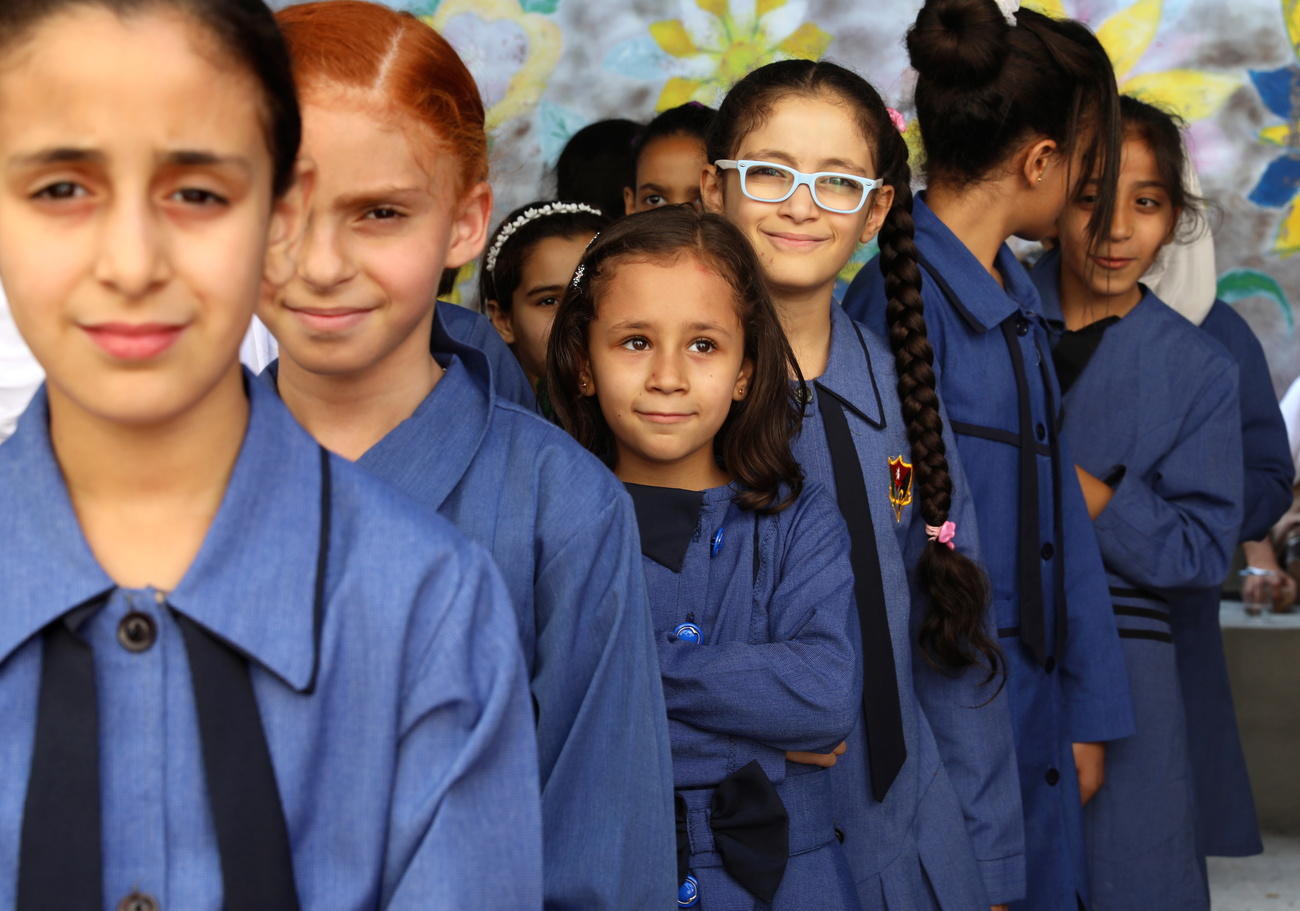

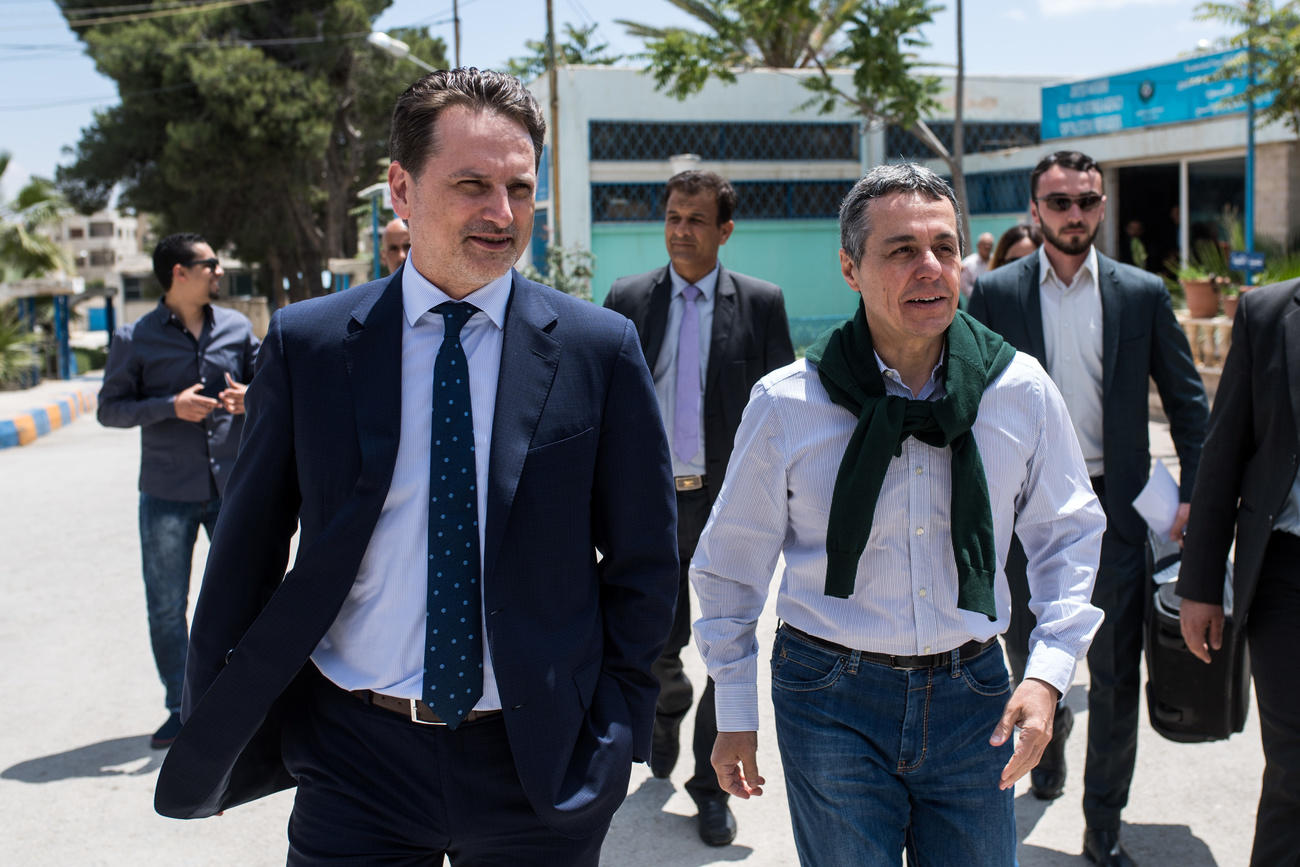

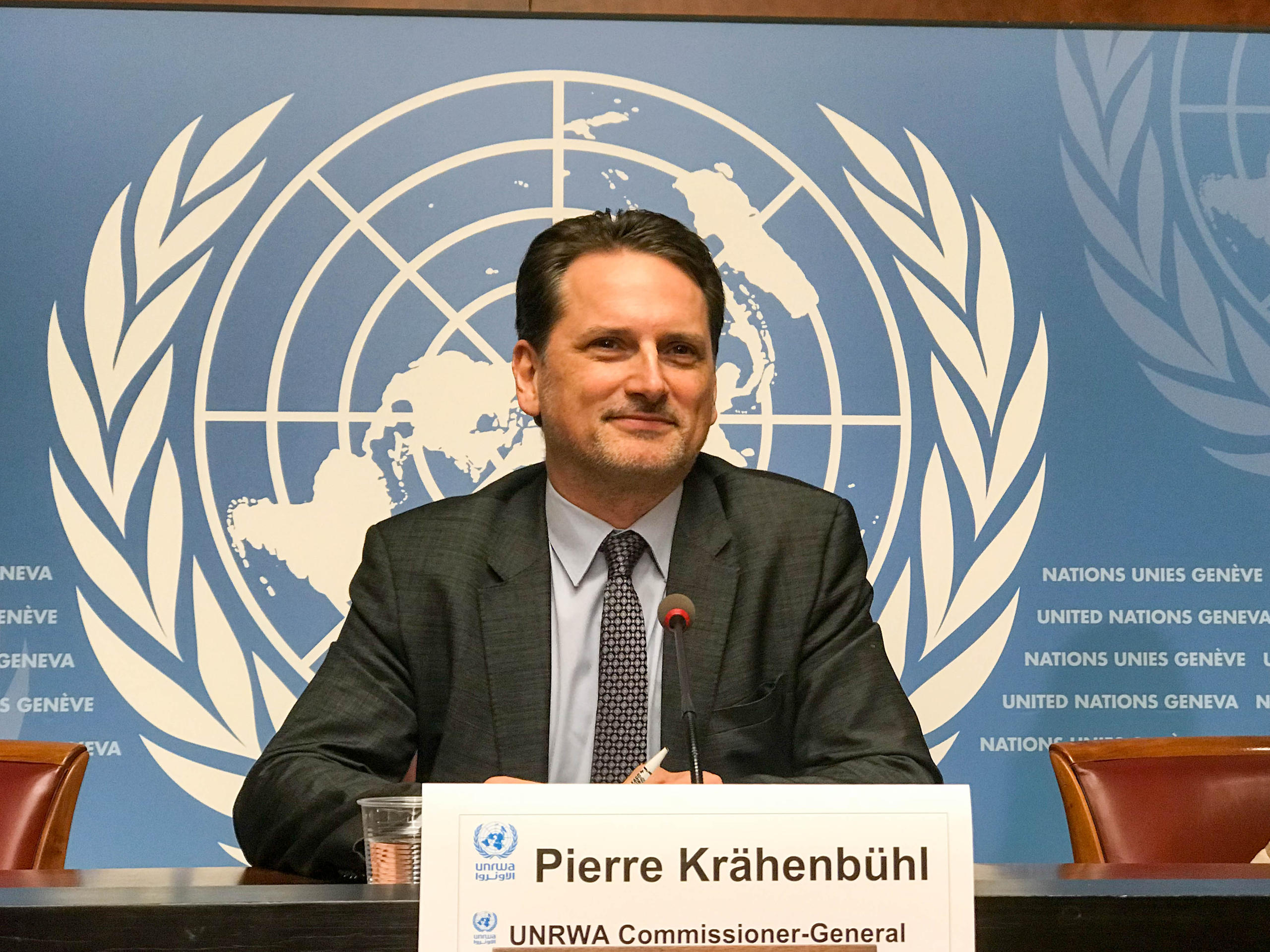
You can find an overview of ongoing debates with our journalists here . Please join us!
If you want to start a conversation about a topic raised in this article or want to report factual errors, email us at english@swissinfo.ch.